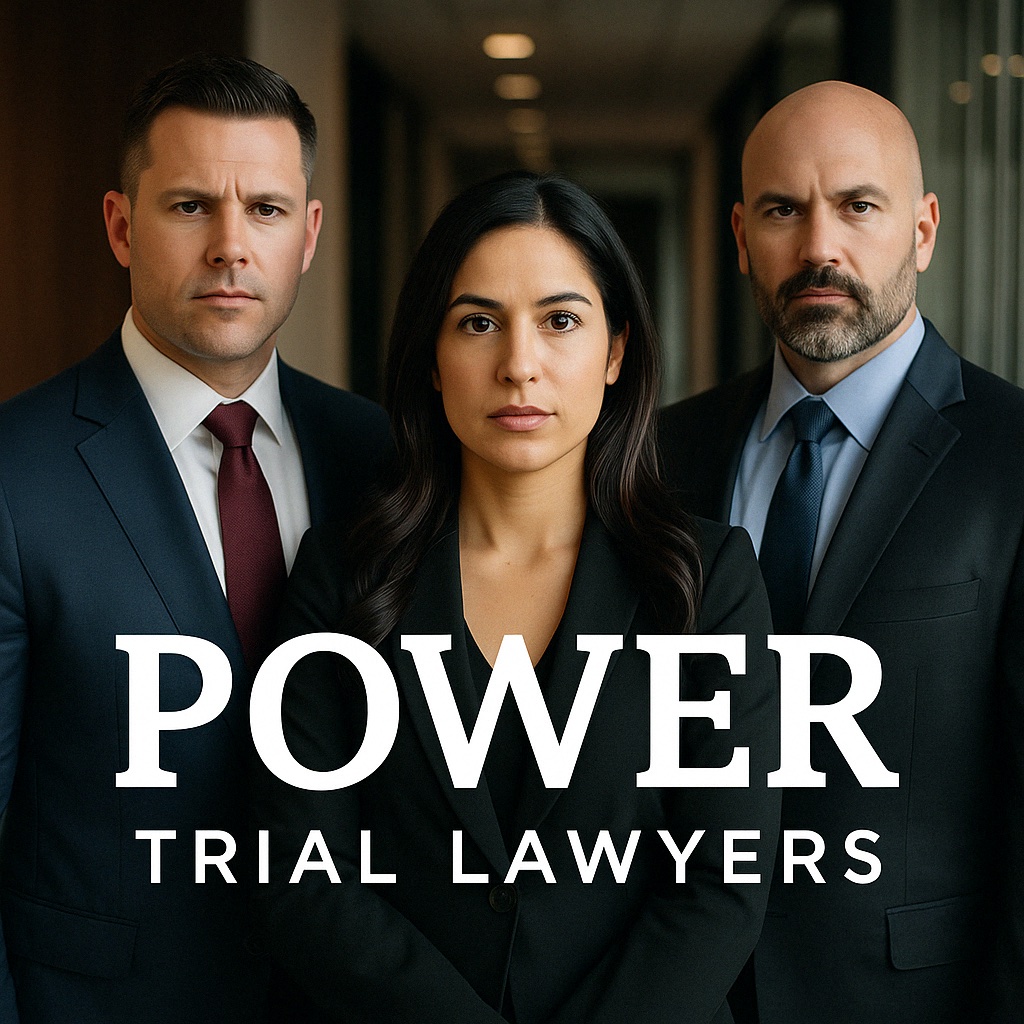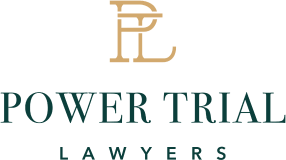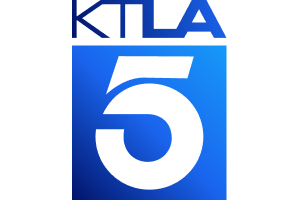- Free Consultation: (888) 808-2179 Tap Here to Call Us
What Happens After an Arraignment in Los Angeles Criminal Cases?
Los Angeles Criminal Defense Guide by Power Trial Lawyers
What Happens After an Arraignment in Los Angeles Criminal Cases?
If you or someone you love is arrested in Los Angeles, the arraignment is usually the first time you step into a courtroom. But it’s not the end of the story — it is the beginning of a timeline that can control your freedom, your record, and in serious cases, your future.
After an arraignment in a Los Angeles criminal case, several things begin to move immediately: deadlines start running, judges begin evaluating custody and bail, prosecutors start building their case, and the defense is expected to start challenging it. The period between arraignment and trial is where the case is often won. Getting the right criminal defense lawyer involved at this stage can mean the difference between dismissal, a drastically reduced charge, or a conviction that follows you forever.

This page is designed for real people — not lawyers. We’re going to walk you through what happens after the arraignment in Los Angeles County, step by step, in plain English. We will explain the hearings, deadlines, strategy, and the decisions that matter most. We will also tell you what you should be doing right now to protect yourself.
Power Trial Lawyers is a premier Los Angeles criminal defense firm focused on high-stakes felony defense, firearms-related charges, violent offenses, and complex criminal litigation. We appear in courthouses across Los Angeles County, Orange County, and Southern California daily. Our job is to protect you.
At the end of this article, you will know:
- What happens next in your case.
- What you should (and should not) be doing right now.
- How fast things move.
- Why hiring a Los Angeles criminal defense lawyer immediately after arraignment is critical.
- How to contact us for immediate help.
If you have court coming up — or if a loved one is still in custody — call Power Trial Lawyers at (888) 808-2179 for a confidential consultation.
Quick Definition: What Is an Arraignment?
The arraignment is typically your first formal court appearance in a criminal case. At arraignment:
- You are told what you’re being charged with.
- You’re advised of your constitutional rights (to counsel, to remain silent, to a speedy trial, etc.).
- Plea is entered (usually “not guilty” at this stage).
- The court addresses bail, release conditions, and the next court date.
That’s important — but the real battle often starts after arraignment. The court sets future hearings and deadlines, and those hearings can affect whether charges stick, get reduced, or disappear.
What Happens Immediately After the Arraignment in Los Angeles?
The minute you leave that first courtroom, several things begin to happen under California law and Los Angeles County practice.
1. The Court Sets the Next Hearing Date
The judge will schedule the next appearance. This can be:
- A pretrial hearing (for misdemeanors),
- An “Early Disposition Conference” / “Pre-Preliminary Hearing Conference” (for felonies),
- Or the preliminary hearing itself (in felony cases).
That date is not random. It controls everything going forward. From that moment, the “speedy trial clock” starts to run, and the prosecution is under pressure to justify continuing the case.
2. Bail and Release Conditions Can Be Revisited
Even if the judge made a decision about bail at the arraignment, that decision is not permanent. Bail and release terms (like electronic monitoring, stay-away orders, firearm surrender, alcohol/drug testing, etc.) can be challenged again at future hearings if circumstances support it. California law allows the court to modify release conditions upon a showing of good cause, and the court must consider public safety and flight risk.
This matters if:
- Bail was set too high,
- You were remanded (kept in custody),
- OR you were released, but under restrictions that will affect your job, parenting, or immigration status.
A skilled Los Angeles criminal defense lawyer can file to revisit bail and argue for release on your own recognizance (OR release), or ask for less restrictive terms.
3. Deadlines Start Running — Fast
In California felony cases, you have a right to a preliminary hearing within 10 court days of arraignment unless you agree to waive time. (Penal Code § 859b.) If you do not waive time, the prosecution is forced to show probable cause very quickly.
In misdemeanor cases, different timelines apply, but the point is the same: the government is now on the clock.
That timing is leverage. Used properly, it can force the prosecution to make a deal they weren’t planning to make.
The Discovery Phase: How Evidence Starts Moving After Arraignment
One of the biggest things that happens after arraignment is that evidence begins to change hands.
What Is “Discovery” in a Criminal Case?
“Discovery” is the exchange of evidence. After arraignment, the prosecutor has a legal duty to turn over police reports, videos, statements, and exculpatory (helpful to the defense) material. California Penal Code § 1054 and related law control this process.
This includes:
- Police reports
- Body camera footage
- Surveillance stills/video
- Witness statements
- Forensic lab results
- Alleged victim statements
- Any evidence that may show you are innocent or that a witness is not credible
At Power Trial Lawyers, we don’t just wait for discovery. We go get it.
Independent Defense Investigation Starts Immediately
Right after arraignment, your defense team should begin its own investigation:
- Locating and interviewing witnesses,
- Pulling surveillance video from nearby businesses before it’s automatically deleted,
- Downloading cell phone data,
- Getting 911 recordings,
- Photographing the scene (while it still looks like it did),
- Preserving social media evidence,
- Retaining experts (forensics, ballistics, accident reconstruction, lab analysis, mental health professionals, and so on).
Why now? Because surveillance systems overwrite themselves. Witnesses get coached. Stories “tighten up.” The people who move fast control the narrative.
If you’re serious about fighting the case, investigation after arraignment is not optional. It’s critical.
Hearings After Arraignment in Los Angeles Felony Cases
Felony cases in Los Angeles follow a fairly standard sequence after arraignment. Understanding each stage will help you understand where your case really stands.
1. Pre-Preliminary Hearing Conference / Early Disposition Conference
Los Angeles uses settings like the “Early Disposition Program” (EDP), “Early Disposition Conference” (EDC), or “Pre-Preliminary Hearing Conference,” depending on the courthouse. This usually happens quickly after arraignment.
Purpose:
- Discuss possible plea deals early.
- Address missing discovery.
- Revisit bail.
- Raise potential defenses and mitigation.
This is where an excellent criminal defense lawyer can sometimes close the case before it ever matures into a full felony battle. We can present mitigation, convince the prosecutor they overcharged, or negotiate entry into a diversion or alternative program.
2. The Preliminary Hearing (Felony Only)
If the case doesn’t resolve early, the next major event is the preliminary hearing — usually within 10 court days unless you waive time. Penal Code § 859b gives you this right.
Important:
- This is NOT a trial.
- There is no jury.
- The standard is low: the prosecution only has to show “probable cause,” not “beyond a reasonable doubt.”
Why it matters anyway:
- The defense gets to cross-examine witnesses under oath.
- We can lock witnesses into testimony that can later be used to impeach them at trial.
- We can expose weaknesses in police work.
- We can highlight illegal searches, sloppy evidence handling, credibility problems, or exaggeration.
A strong preliminary hearing can:
- Get charges dismissed outright,
- Knock a felony down to a misdemeanor (“wobbler” reduction),
- Or force the District Attorney to improve the offer.
For firearms cases, violent felonies, strike allegations, or gang allegations, the prelim is absolutely critical. This is where narrative control begins. A Los Angeles criminal defense lawyer who dominates at prelim can change the entire posture of the case.
3. Motions to Suppress Evidence (Penal Code § 1538.5)
After arraignment and before trial, your defense lawyer can bring suppression motions. These challenge whether the police acted legally. If the court finds that law enforcement violated the Fourth Amendment or California law, evidence can be excluded.
Examples:
- Vehicle search without probable cause.
- Warrant that was invalid or overbroad.
- Statements taken in violation of Miranda.
- Warrantless entry into a home.
If critical evidence gets suppressed, some or all charges can collapse.
4. Penal Code § 995 Motion (Motion to Dismiss)
After the preliminary hearing, if you are “held to answer,” the prosecution files what’s called an Information. The defense can then file a Penal Code § 995 motion to attack legal defects in that holding order. We argue that the magistrate relied on improper evidence or misapplied the law, and ask the court to dismiss charges — sometimes entire counts.
This is one of the most technical and powerful felony tools in California practice. It is a surgical strike.
Speedy Trial Rights and “Time Waivers”
The Trial Clock
California has strict timelines:
- Felony cases: generally 60 days from arraignment on the Information to jury trial unless the defendant waives time.
- Misdemeanor cases: 30 days to trial if you’re in custody, 45 days if you’re out of custody. (Penal Code § 1382.)
This is called your speedy trial right.
Should You “Waive Time”?
In many cases, yes — but it depends.
Waiving time allows the defense to:
- Finish investigation,
- File critical motions,
- Negotiate a better deal,
- Retain experts,
- Build mitigation (rehab, employment, counseling, etc.).
Not waiving time applies pressure on the prosecution. Waiving time buys you preparation. This decision is strategic and should be guided by an experienced Los Angeles criminal defense attorney who understands how your judge, prosecutor, and courthouse operate.
Plea Negotiations and Diversion Options After Arraignment
Most criminal cases in Los Angeles do not go to trial. They resolve between arraignment and trial readiness. That is not an accident. That is negotiation.
What Does “Negotiation” Look Like?
At Power Trial Lawyers, negotiation is not “begging the DA.” It is structured advocacy.
We do things like:
- Provide mitigation packets: employment records, military service, school records, treatment enrollment, character letters — all to humanize you.
- Show the DA exactly where their case is weak (illegally obtained evidence, credibility problems, contradictory statements, or lack of proof of a specific element).
- Raise legal defenses early (self-defense, accident, no intent, mistaken ID, no possession, etc.).
- Push for alternative resolutions.
Alternatives to Jail and Alternative Resolutions
Depending on the case type, background, and judge, we may pursue:
- Pretrial diversion for certain offenses.
- Drug diversion (Penal Code § 1000, DEJ).
- Mental health diversion under Penal Code § 1001.36.
- Veterans Court and military diversion (Penal Code §§ 1170.9, 1170.91).
- Reduction of felonies to misdemeanors where legally supported.
- Probation with treatment instead of custody.
For gun charges, domestic violence allegations, theft cases, and first-time offenses, our goal is often to structure an outcome that protects your future: keep you employable, protect immigration status, avoid strike priors, and prevent a felony conviction when possible.
Preparing for Trial in Los Angeles County
If your case does not resolve, the next stage is full trial preparation.
Building the Defense Theory
Your lawyer should not be “winging it.” We build a theory. For example:
- Identity defense (you’re not the person).
- Intent defense (no criminal intent / accident).
- Self-defense / defense of others.
- Illegal search / planted evidence / contamination.
- Constitutional violations.
Jury Instructions and Burden of Proof
California juries are instructed (CALCRIM 220 and related instructions) that the prosecution has to prove every element of the charge beyond a reasonable doubt. That is the highest standard in the American legal system.
Your defense lawyer can also fight for “lesser included offense” instructions. That means the jury may be allowed to convict on a lesser charge instead of the main, more serious charge. Why is that important? Because it can turn a potential prison sentence into probation.
Witness Control and Impeachment
By the time we get close to trial, we have transcripts from the preliminary hearing. If a witness changes their story, we use their earlier sworn statements to impeach them. This is why the prelim you had 30–60 days ago suddenly becomes one of the most powerful tools at trial.
Experts
In serious cases — especially firearm allegations, use-of-force cases, DUI with injury, accusations involving forensics, or allegations involving mental state — we work with experts. That can include:
- Ballistics/firearms experts,
- Forensic toxicologists,
- Psychologists/psychiatrists (for mitigation or mental health defenses),
- Digital forensics experts,
- Crime scene reconstruction specialists.
Your defense isn’t just you “telling your side.” It’s you plus science, law, and procedure.
If You Lose: Sentencing in California Criminal Court
No one wants to talk about sentencing, but you need to understand it — because protecting you at sentencing is part of real criminal defense.
Sentencing Basics
If you are convicted, the judge will sentence you. California uses determinate sentencing for most felonies, which means there’s a “low term,” “mid term,” and “high term.” The judge will look at aggravating and mitigating factors in deciding which to choose, and for certain felonies, must justify going above the middle term. (Penal Code § 1170(b).)
Aggravating and Mitigating Factors
Aggravating factors can include:
- Use of a firearm,
- Great bodily injury,
- Strike priors,
- Prior convictions.
Mitigating factors can include:
- Minimal or no criminal record,
- Genuine remorse,
- Restitution paid,
- Mental health struggles,
- Coercion or duress,
- Strong community support / employment.
We build mitigation. We do not show up empty-handed.
Alternatives to State Prison
Even if you’re convicted, not every sentence means state prison. Possible outcomes include:
- Felony probation,
- County jail time instead of state prison (under Penal Code § 1170(h)),
- Work release,
- Electronic monitoring (ankle monitor),
- Residential treatment,
- Strict probation terms such as stay-away orders, firearms restrictions, counseling, community labor.
A serious Los Angeles criminal defense lawyer is already negotiating sentencing structure long before trial ends.
After Sentencing: Appeals, Post-Conviction, and Record Clearing
Even if your case ends in a conviction, you still have options.
Motion for New Trial
If there was juror misconduct, newly discovered evidence, or serious legal error, we can bring a motion for new trial under Penal Code § 1181. What Happens After an Arraignme…
Appeal
In California, you generally have 60 days from judgment to file a notice of appeal in a felony case. If you miss that window, you can lose appellate rights.
Habeas Corpus / Post-Conviction Relief
A writ of habeas corpus can challenge unlawful custody, ineffective assistance of prior counsel, newly discovered evidence (like recanted witness testimony), or constitutional violations.
Record Clearing and Expungement
Depending on the case, you may be eligible for:
- Early termination of probation,
- Reduction of a felony to a misdemeanor,
- Dismissal/expungement under Penal Code § 1203.4,
- Relief under Penal Code § 1172.1 (resentencing / post-conviction modification mechanisms),
- Certificates of Rehabilitation, which can be a path toward a Governor’s Pardon and restoration of some civil rights. What Happens After an Arraignme…
Translation: A conviction today does not have to define the rest of your life. For a lot of people, cleaning up the record is the single most important step for employment, licensing, immigration stability, and gun rights down the road.
Step-by-Step Guide: What You Should Do After Your Arraignment
This is the part no one explains in court. Here is exactly what to do if you’ve just been arraigned in Los Angeles County.
Step 1. Stop Talking About the Case
Do not talk about the case on the phone from jail (those calls are recorded), over text, in DMs, or in group chats. Do not post about it, joke about it, or try to “explain your side” online. The District Attorney can and will use that against you.
Step 2. Retain a Serious Los Angeles Criminal Defense Lawyer Immediately
Do not “wait and see.” After arraignment, decisions are being made with or without you:
- Will the DA try to stack enhancements?
- Will they overcharge a firearm allegation?
- Will they push for a strike?
- Are they going to elevate a misdemeanor to a felony?
- Will they fight to keep you in custody?
A skilled criminal defense lawyer can get ahead of those decisions, not just react to them. Early intervention can influence charging, bail, and negotiation strategy. What Happens After an Arraignme…
Step 3. Get Your Paperwork Organized
Keep copies of:
- Booking sheet / arrest paperwork.
- Any protective orders or “stay away” terms.
- Your bail documents.
- Your next court date notice.
- Any property receipts from the police (phones, firearms, cash, computers, etc.).
Bring that to your lawyer. Immediately.
Step 4. Get Witness Names to Your Attorney
If anyone saw what happened — or if anyone can truthfully speak to your sobriety, self-defense, alibi, mental health history, lack of intent, character, or relationship with the alleged victim — get that list to your lawyer now.
Do not coach the witnesses. Do not tell them what to say. Just identify them and provide contact info.
Step 5. Preserve Evidence
Videos get deleted. Messages disappear. Surveillance overwrites itself. Screenshots “vanish” later.
If there are text messages, social media messages, Ring camera footage, receipts, Uber records, location data, or anything that tells the real story — save it now. Send it securely to your lawyer. Don’t send it to the accuser, the police, or a friend.
Step 6. Follow All Court Orders
If the court issued a protective order, a no-contact order, a firearms surrender order, SCRAM alcohol monitoring, GPS, or anything similar — obey it. Violating a restraining or protective order, especially in gun or domestic cases, can get bail revoked and new charges added fast.
Step 7. Start Building Mitigation
If the facts are not perfect for you, mitigation matters:
- Enroll in counseling (anger management, substance counseling, mental health).
- Start community service if appropriate.
- Get proof of work/school/military obligations.
- Address any substance or mental health issues with licensed professionals.
Good criminal defense is not just “prove you’re innocent.” Sometimes it’s also “prove you’re worth saving.”
This is especially important in Los Angeles criminal courts on firearm cases, domestic accusations, drug offenses, and first-time felony arrests, where judges will often consider alternatives if they see structure, accountability, and genuine effort.
Why You Need a Los Angeles Criminal Defense Lawyer Immediately After Arraignment
You are in an extremely sensitive window.
From arraignment forward:
- Bail can be challenged.
- Cases can get reduced.
- Motions can start.
- Evidence can be preserved or lost.
- Diversion opportunities can open — and then close if you miss them.
- The DA is already documenting everything you say and do.
The prosecution has a team. You need yours.
Power Trial Lawyers is built for serious criminal defense in Los Angeles and across Southern California. We defend gun cases, violent felony accusations, domestic allegations, high-stakes DUI with injury cases, and felony strikes. We know the courthouses. We know the players. We know how fast things move. And we know how to protect you.
Call us at (888) 808-2179 for a confidential consultation. Your freedom is not a “later” problem. It is a right-now problem.
Frequently Asked Questions: Life After Arraignment in Los Angeles
Do I need a lawyer after the arraignment if I already pled not guilty?
Yes. The arraignment is only step one. The real legal work — discovery, investigation, bail work, negotiations, motions to suppress, diversion opportunities, preliminary hearing strategy — all happens after arraignment. Waiting to “see what happens” is how people get steamrolled.
2. Can bail be lowered after arraignment?
Yes. Bail and release terms can be revisited at almost any pretrial hearing if we show good cause or changed circumstances. This includes asking for release on your own recognizance (OR release) or proposing less restrictive conditions like electronic monitoring instead of custody.
3. What is a preliminary hearing and why is it so important?
In a felony case, the prelim is the first real test of the case. The prosecutor has to show probable cause to move forward. We get to cross-examine witnesses on the record. Weak cases get exposed, and sometimes charges get dismissed or reduced.
4. What if the officer or main witness doesn’t show up at the preliminary hearing?
In some situations, if a critical witness does not appear, the prosecution may have trouble meeting its burden at that hearing. The judge may continue the hearing for good cause, but in some cases, we can argue for dismissal or for holding the DA to what they can actually prove.
5. Will the DA offer me a deal after arraignment?
Often, yes. Many Los Angeles cases resolve between arraignment and the trial-readiness stage. That’s where mitigation, character records, treatment enrollment, and our negotiation strategy matter. We are not passive. We build leverage.
6. What is a Penal Code § 1538.5 motion?
That’s a motion to suppress evidence. We argue the police violated your constitutional rights (bad stop, bad search, Miranda violation, overreaching warrant). If the judge agrees, evidence — including guns, drugs, statements — can get thrown out. Sometimes that kills the case.
7. What is a Penal Code § 995 motion?
After the preliminary hearing, if you’re “held to answer,” we can challenge that holding order using a § 995 motion. That’s basically us telling the judge: “The magistrate got it wrong. The evidence was legally insufficient.” If we win, charges can be dismissed.
8. Do I have a right to a speedy trial?
Yes. California law protects your right to a speedy trial — 60 days for most felony trials, and 30/45 days for misdemeanors depending on custody status. But you can “waive time” if more preparation will help your defense. That decision is strategic and you should not make it alone.
9. If I’m convicted, am I automatically going to state prison?
Not necessarily. Depending on the offense, your record, and the negotiations done on your behalf, you may be eligible for probation, county jail instead of state prison, house arrest, treatment programs, or other alternatives. Serious defense work includes sentencing advocacy, not just trial.
10. Can I clean this off my record later?
In many cases, yes. California offers options like early termination of probation, reduction of certain felonies to misdemeanors, expungement (Penal Code § 1203.4), and even resentencing mechanisms under Penal Code § 1172.1. For serious convictions, there are also post-conviction remedies and appeals.
Call Power Trial Lawyers Today
If you or a loved one has already been arraigned — or is about to be arraigned — in Los Angeles County, you are in a critical window. What happens after arraignment will shape the rest of the case.
Do not walk into the next hearing alone.
Call Power Trial Lawyers at (888) 808-2179 for a confidential consultation with a Los Angeles criminal defense lawyer. We represent clients in Los Angeles, Orange County, Riverside County, San Bernardino County, and throughout Southern California.
Your freedom, your record, your future — this is where it gets decided.


















